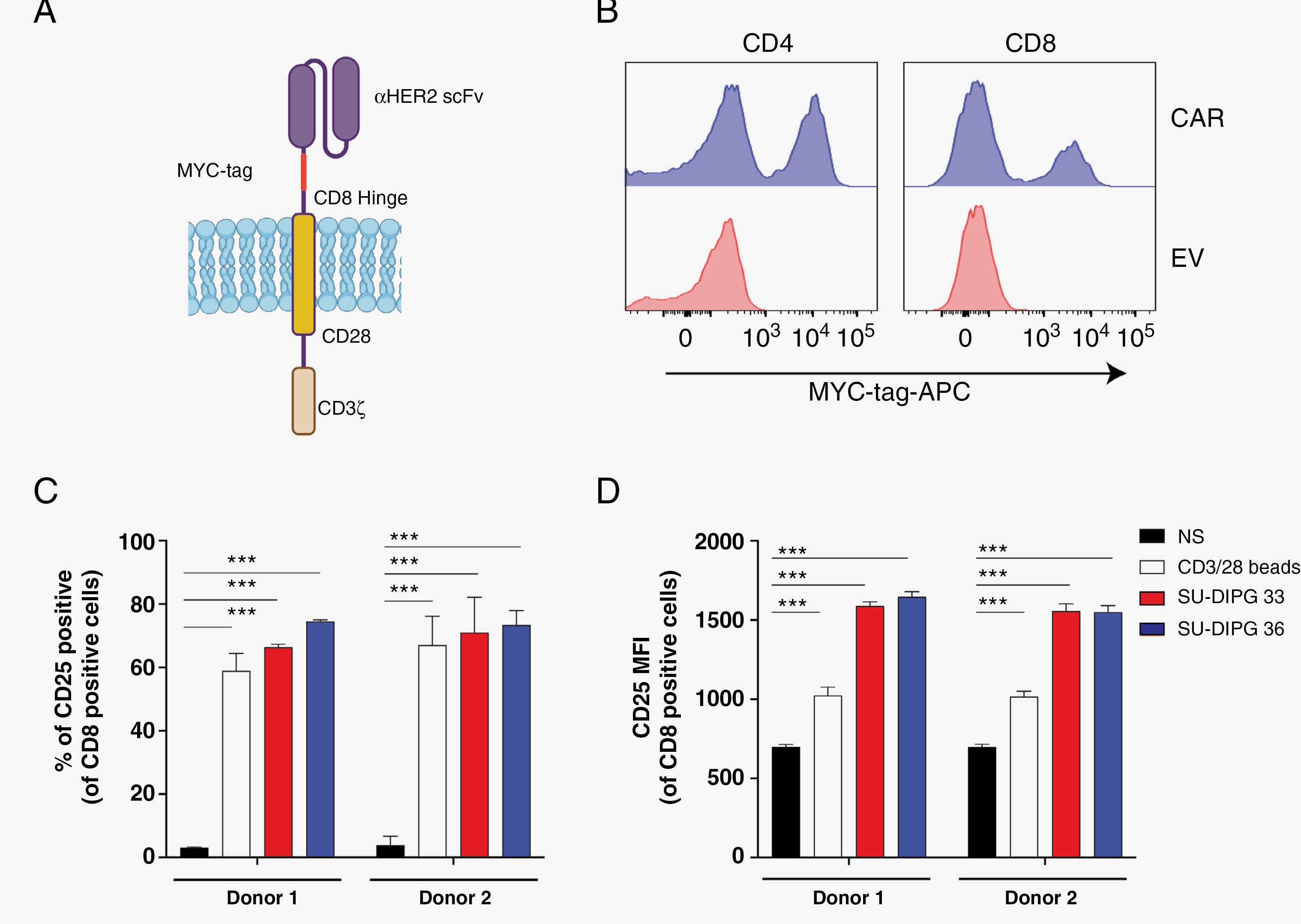Diffuse Intrinsic Pontine Glioma (DIPG) is an aggressive brain tumor that usually occurs in children between 5 and 7. This fast-growing tumor forms in the part of a child’s brain responsible for vital functions such as breathing, swallowing, and movement, which means it cannot be surgically removed. Children diagnosed with DIPG are unlikely to survive over one year after diagnosis, and there is currently no treatment for this devastating disease.
CAR-T cell therapy has anti-cancer effect on DIPG
In a recent study, researchers from research institutions, including the Walter and Eliza Hall Institute of Medical Research (WEHI) in Australia, found that CAR-T cell therapy has shown promise in treating DIPG. They noted that CAR-T cell therapy has effective targeting effects on DIPG tumors. The results of the study were published on May 4, 2023, in the journal Neuro-Oncology Advances under the title “HER2 chimeric antigen receptor T cell immunotherapy is an effective treatment for diffuse intrinsic pontine glioma“.
Led by Associate Professor Misty Jenkins, who heads the WEHI lab, the authors found that in preclinical models, these specially engineered CAR-T cells were able to enter the brain and produce anti-cancer effects by reducing tumor load.
“Unlike radiation therapy, which kills both cancer cells and healthy brain tissue, CAR-T cell therapy uses a patient’s own immune cells and genetically modifies them to recognize and kill tumors,” Jenkins said. “CAR-T cells offer the possibility of a cure without long-term side effects. These genetically modified CAR-T cells work as a ‘living drug’, meaning that the patient will retain a living memory of the anti-tumor response in the body, which may also serve to kill the tumor if it returns. The fact that these cells can completely eliminate the tumor and persist in the body in the future is what makes CAR-T cell therapy exciting and why immunotherapy is the future of precision medicine.”
A new target for future clinical trials
This new study found that it is possible to target DIPG tumors using CAR-T cells that recognize a cancer-specific protein called HER2. Once inside the brain, HER2 CAR-T cells recognize the protein and signal the T cells to kill the tumor cells. Jenkins said that using CAR-T cell therapy effectively eliminated the DIPG tumors in the preclinical model of this study.
She added, “This paper shows that targeting HER2 does work, and we would like to see this treatment included in current and future clinical trials in Australian children. While there are no long-term studies yet, this study builds on other research work, showing that this treatment is effective in reducing DIPG tumors and improving the quality of life for these patients who currently have no treatment options. Our hope is that this treatment will be included in future clinical trials and eventually used in combination with other drugs to treat DIPG.”
Laying the groundwork for new therapies
“The study is a promising step forward in the treatment of DIPG.” Jenkins said, “It sets the stage for us to look at thousands of potential therapies for anti-cancer immune cells against DIPG. Other studies have confirmed that this treatment is safe in children, so we hope it won’t be long before it’s available in the clinic.”
Reference
1. Wang, Stacie S., et al. “HER2 chimeric antigen receptor T cell immunotherapy is an effective treatment for diffuse intrinsic pontine glioma.” Neuro-Oncology Advances 5.1 (2023): vdad024.

